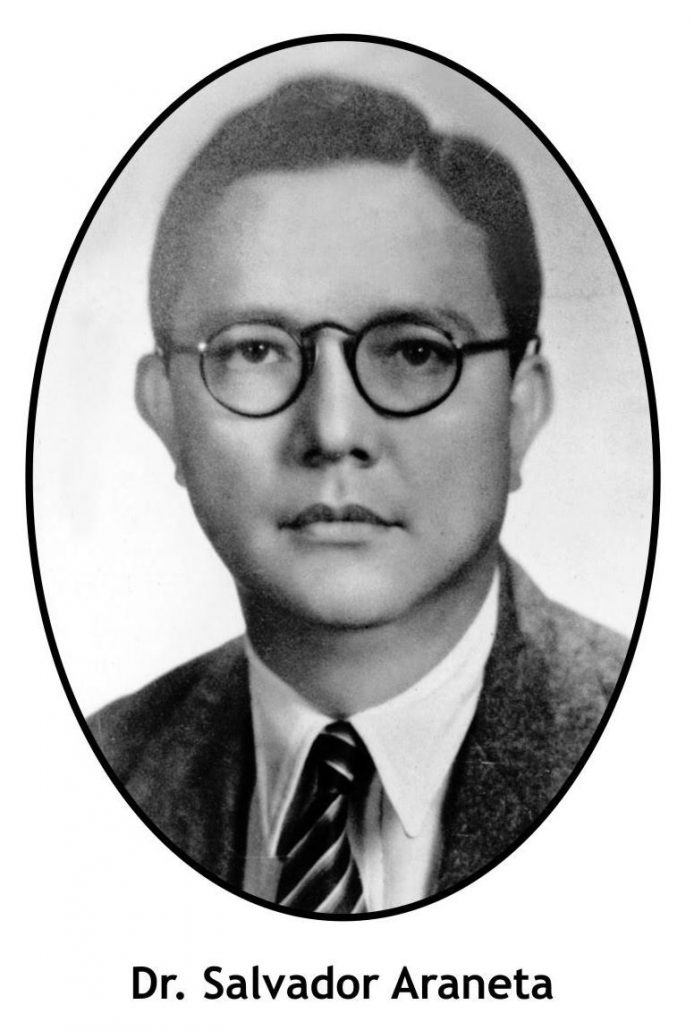 PART II
PART II
OUT-OF-THE-BOX FEATURES OF BAYANIKASAN CONSTITUTION
This is not an endorsement of Federalism. Rather, it is a presentation of the out-of-the-box aspects of Dr. Salvador Araneta’s Bayanikasan Constitution which is a thoroughly studied and researched document that comes from a non-political and non-partisan person, delegate to both the 1934-35 and the 1971-72 Constitutional Conventions.
COLLECTIVE LEADERSHIP
As a cure to absolute power, Araneta urged the reduction of the powers of the President or the diffusion of political powers. Instead of a single person as leader, three individuals will lead us, each with his own sterling qualities. They will have definite and defined powers and responsibilities. The three are required to relinquish all party affiliations so that they represent and serve solely the people.
This Collective Leadership will also be known as the Troika. In the Federal Government, the Troika will be composed of the President, the Prime Minister and the Speaker of Parliament.
In each State or Region, there will also be a Troika that will be composed of the Governor General, the Premier and the Speaker of the State Assembly.
IN THE FEDERALGOVERNMENT
THE PRESIDENT shall supervise the Ministry of National Defense, the Ministry of National Affairs and the Ministry of National Identity, Culture and Education. However, he shall no longer be able to appoint members of the Judiciary, the Commission on Audit, the Commission on Elections and the Civil Service Commission. He shall also be relieved of the power to suspend and dismiss high officials in the local government. Dismissals can only be made through impeachment.
THE PRIME MINISTER shall have jurisdiction over all other Ministries of the Federal Government, related to the domestic and economic problems and will also participate in the program of government to be submitted annually and from time to time to Parliament.
THE SPEAKER OF THE PARLIAMENT shall preside at all meetings of the Parliament and direct its affairs and he shall decide all conflicts of jurisdiction between the President and the Prime Minister.
IN THE STATE GOVERNMENTS
THE GOVERNOR GENERAL shall have jurisdiction over Departments and he will be entrusted with interstate matters and the Department of Culture and Education and the Department of Peace and Order. The PREMIER shall have supervision over the Departments mainly concerned with the economic development of the State. THE SPEAKER OF THE STATE ASSEMBLY shall have the corresponding powers and duties of the Speaker of the Legislature.
ELECTION OFTHE LEADERS
In the FEDERAL GOVERNMENT, the members of the Troika shall be elected by the Parliament and not by direct voting of the people. Each party represented in Parliament with not less than 10% of its members shall nominate three candidates for President. By a system of elimination and subsequent secret voting, the one receiving the highest votes, with a majority, shall be proclaimed President. Subsequently, using the same procedure, the Prime Minister will be elected, and lastly, the Speaker of Parliament.
In the STATE GOVERNMENTS, the officials will be elected through a pyramidal system: the electors in a barrio will elect the barrio councilors who will, in turn, elect the barrio captain, who will serve as an ex-officio member of the Provincial Council and the members of which will elect the Troika of the State.
THE JUDICIARY
The Parliament shall reorganize the Judiciary for as long as it does not violate the principle of the independence of the Judiciary.
The Parliament (or Senate and Congress as they case maybe) shall create a Judiciary composed of the Supreme Court and the Constitutional Tribunal: the Supreme Court as the highest court in the land that shall settle cases involving private law and the Constitutional Tribunal that will settle cases involving public law. (To be continued/PN)

